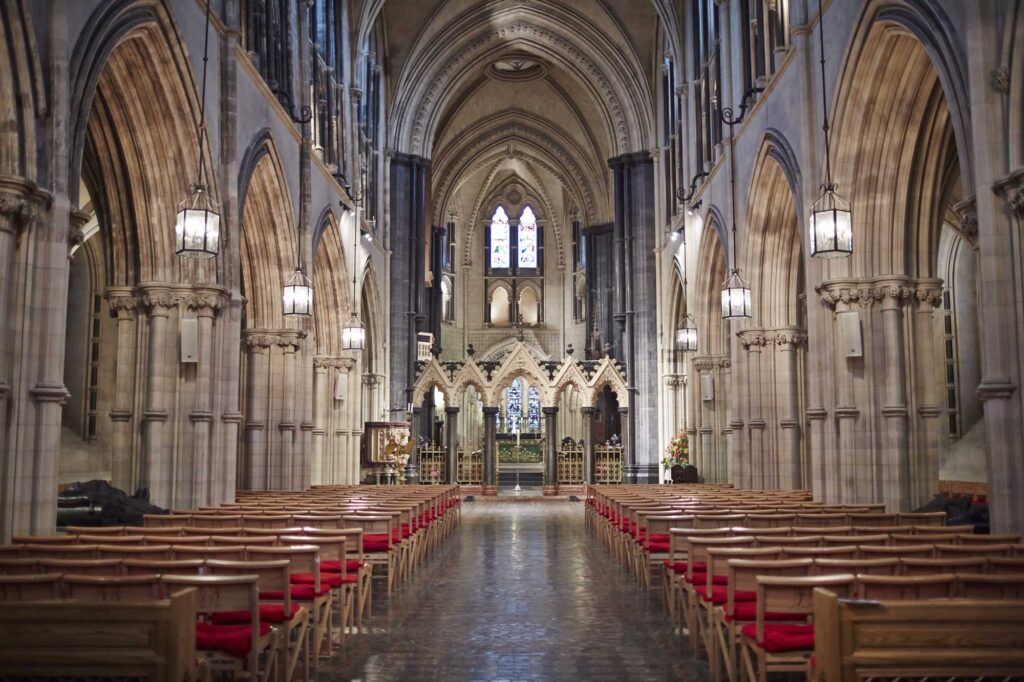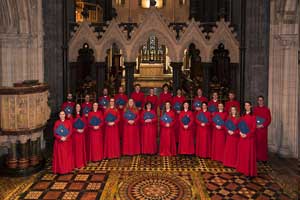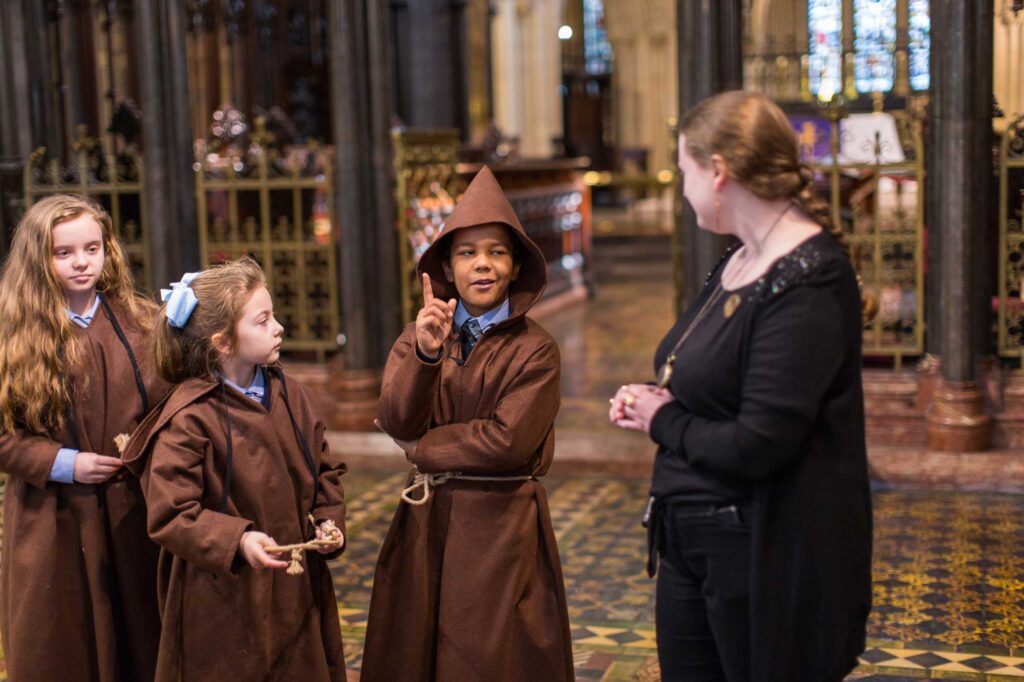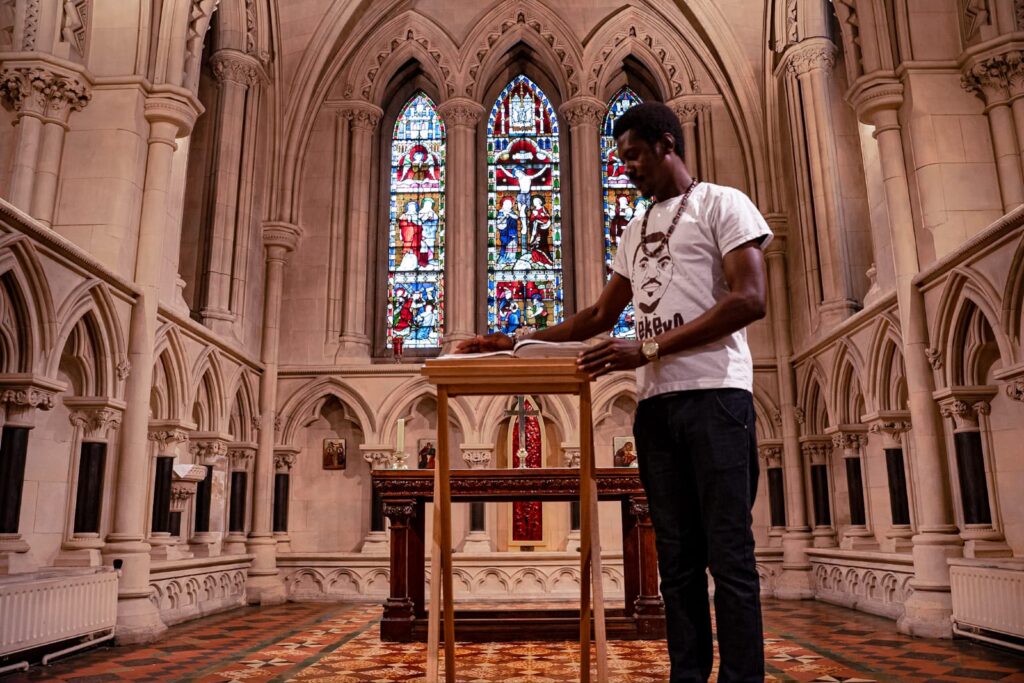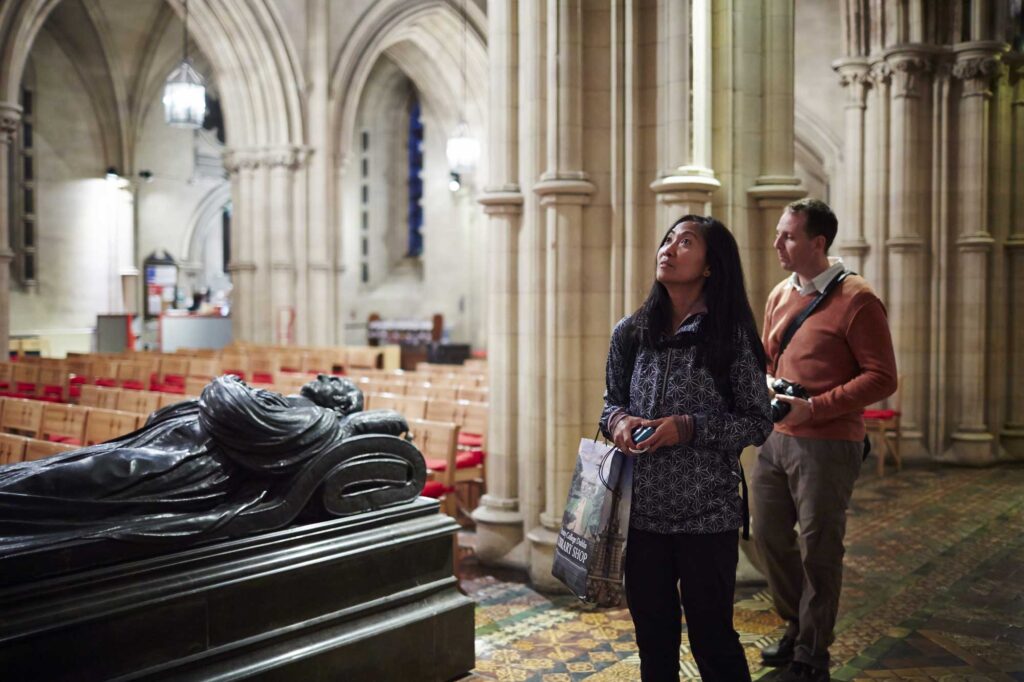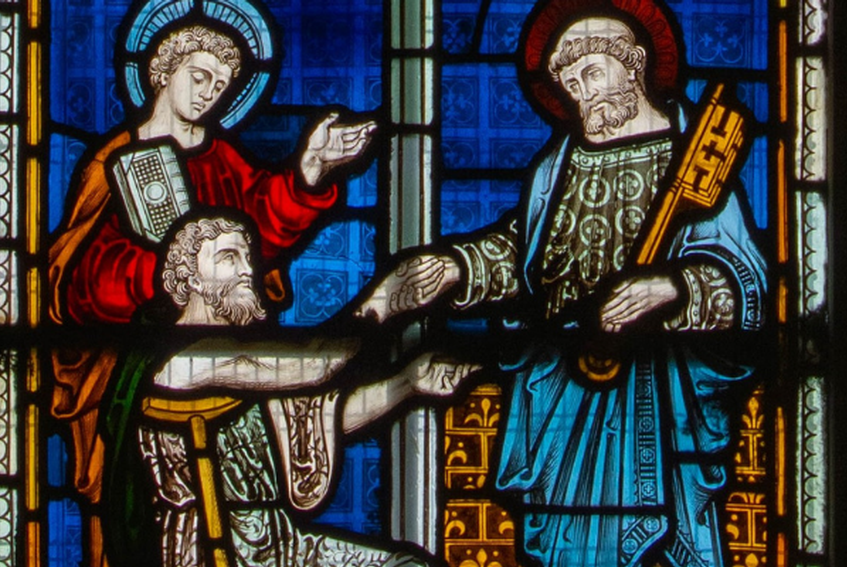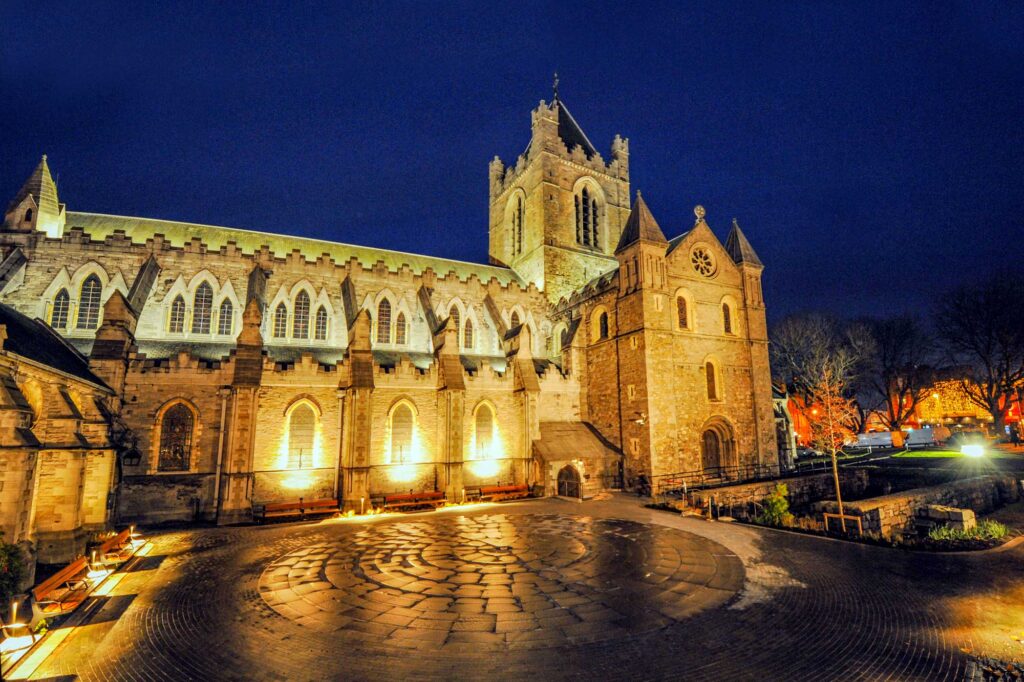Some foreigners, outsiders, button-holed Jesus’ disciple Philip at a Passover festival in Jerusalem some 2,000 years ago. “Excuse me, sir. We’d like to meet Jesus.” They had heard a lot about Jesus – his miracles, his strong words, how he championed people no one else would touch, how he challenged the authorities. It sounded as though he might soon come to a sticky end, which made them want to meet him all the more. “Could you take us to him?” they asked Philip, whose Greek name made him easier to approach.
They don’t get very far, because Jesus sees their approach merely as a sign that his hour has come. Crucifixion, with all its intense suffering and humiliation, threatened for some time, now lies immediately ahead; and God’s glorification, the Son’s glorification, will come about through his acceptance of God’s will. So we have to trust that somehow the Greeks’ request will be answered through and beyond the cross, when the risen and ascended Christ will draw all humanity to himself.
Yet every time I hear this story I’m shocked that these strangers were so ignored. I feel unhappy for them – that they should be treated here as a “sign”, not as human beings in need. The only consolation is that from beginning to end Jphn’s Gospel can be seen as opening the community around Jesus to those who were strangers to the very closed Jewish culture of that time. From the Greek term “logos”, or Word of God, in the very first verse, through the I AM sayings in which Jesus identifies himself with symbols that were familiar in all cultures – BREAD, VINE, SHEPHERD, DOOR, WAY, LIFE – to the explanations of purely Jewish landmarks and customs, it is clear that the evangelist has the widest possible audience for his Gospel in mind. These things, he writes in conclusion, have been written that you may come to believe that Jesus is the Messiah, the Son of God, and through believing may have life in his name. So those Greeks who wanted to meet Jesus at the Passover Feast were included after all.
But what about those who didn’t, or who DON’T want to meet him? What about those who turn their backs? How will the Crucified and Risen Lord somehow draw THEM to himself?
I had a novel experience this week: I attended my first unashamedly atheist funeral. Neither God nor any vestige of hope of further life or consciousness got a look in. A couple of poems, some secular music, a few memories of the deceased, a message of appreciation for her closest family, and we came to the committal of “this body”, lying in the coffin under a defiantly bright spray of orange flowers, to be burned. There was no commendation to God’s mercy.
“This body” had belonged to a woman who clearly had plenty of friends who had loved her and had been blessed by her; but something had happened in her life that turned her off her religion so completely that she rejected any notion of church or faith. So she had composed her own funeral service, thoughtfully and deliberately, to ensure that nothing could intrude to modify her refusal to believe.
In the context of John’s Gospel, which promises eternal life specifically to those who believe, this must have been very hard for some of those who were grieving for her. What comfort can we offer people in such a case? And how does it challenge us a Christians and as friends?
Christians hold many different views of life after death, most of them majoring on hope rather than conviction, since there are a number of different ideas suggested in the New Testament. One would come from Jesus’ message in Matthew’s parable of the Sheep and the Goats, “If you gave food or drink or shelter to the least of these who are members of my family, you did it to me. Come inherit the kingdom prepared for you from the foundation of the world”. Nothing there about faith or belief, only about compassion and loving kindness.
All the same, a touch of belief or Christian hope would be comforting all round, especially in view of the dominant doctrine of salvation by grace through faith.
And this is the big challenge we face as Christians today. There are too many basically good people whose experience of life, and of church life in particular, has made belief impossible for them. Have we over-emphasised the glory of God, the glorification of the Risen and Ascended Christ, the majestic shining-out of God’s presence, at the expense of following the example Jesus gave on earth, showing his Father’s love to all, especially the most socially unacceptable people, spending time with lepers, tax-collectors, down-and-outs and even a cheeky Samaritan woman of dubious reputation?
“Whoever serves me, must follow me,” says Jesus in today’s gospel, “and where I am, my servant will be also”. Imitating Jesus’ way of relating to other people, imitating his willingness to suffer that others may live,
is the condition he gives here for spending eternity with him. Not chanting the Creed and the Gloria every day or affirming ten impossible things before breakfast.
I’m reminded of a poem by Steve Turner – How to Hide Jesus. It goes like this:
There are people after Jesus.
They have seen the signs.
Quick, let’s hide Him.
Let’s think; carpenter,
fishermen’s friend,
disturber of religious comfort.
Let’s award Him a degree in theology,
a purple cassock
and a position of respect.
They’ll never think of looking there.
Let’s think;
His dialect may betray Him,
His tongue is of the masses.
Let’s teach Him Latin
and seventeenth century English,
they’ll never think of listening in.
Let’s think;
humble,
Man of Sorrows,
nowhere to lay His head.
We’ll build a house for Him,
somewhere away from the poor.
We’ll fill it with brass and silence.
It’s sure to throw them off.
There are people after Jesus.
Quick, let’s hide Him.
My friends and fellow Christians, fallible though we are, let us resolve today never again to hide Jesus by failing to reach out to others in his love. His Spirit has been poured out on us in baptism. Did we truly receive it? Do we seek to receive this loving power and presence afresh at the start of each day? If so, God’s love should be more and more disclosed through our lives, at whatever cost. That is how Jesus is truly glorified; that is how God’s love and truth is made known. That is how the world comes to believe. Amen.
Revd Canon Dr Ginnie Kennerley – 22 March

